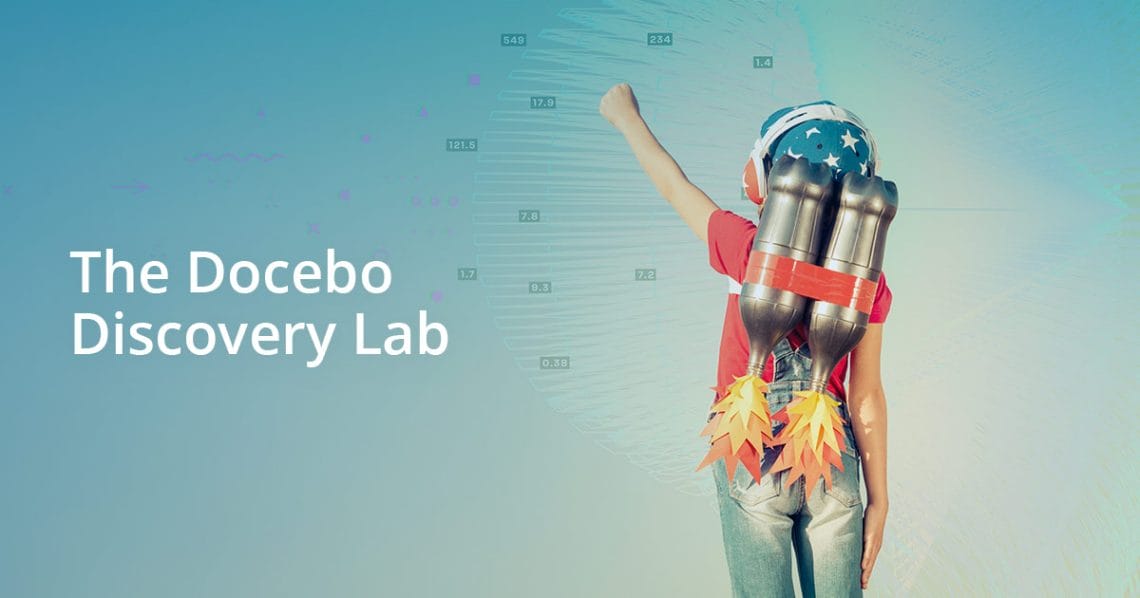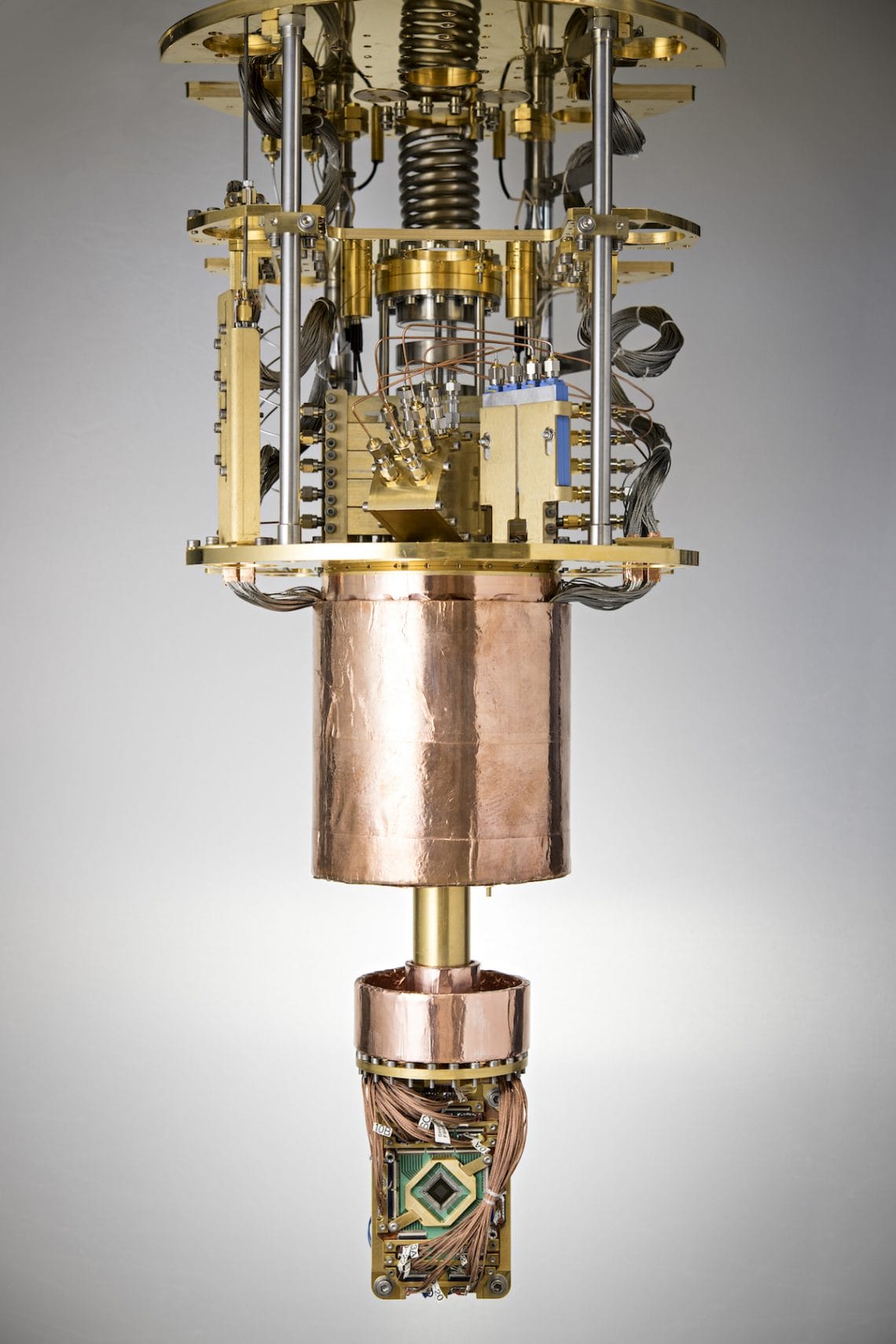
Learn how Quantum Computing is being used by Docebo’s product team.
The ultimate goal for a learning platform is to maximize the return on learning. This means not only maximizing the knowledge learners absorb from courses and content, but also ensuring this is done in the most efficient way possible.
To do this, you need to optimize learning plans, which begs the question: how do you identify the best combination of courses that will close a skill gap, or develop new skills, in the shortest time?
While on the surface this problem seems straightforward, finding the true, optimal answer becomes complicated as you deal with a massive number of possible combinations. One way to uncover the answer is by delving into the world of quantum computing; but first, a little background on why typical analysis using regular computers just doesn’t cut it.
The Limitation of Traditional Computing
Let’s say you have a series of objects (learning courses) and you have to find the perfect combination of those objects to achieve a certain goal (the perfect, optimized learning plan to close a skill gap).
This is called a combinatorial problem because the only way you can find a guaranteed optimal solution is to try and evaluate all the possible combinations. But this may take a very long time.
With a traditional computer, you might choose a combination randomly, check if it works, then choose another set randomly and check if you improved the solution compared to before.
There are algorithms that can guide you in this search more efficiently than randomly, but the fundamental problem remains; you would have to keep doing this hundreds of times to keep improving the solution, and even then, you can’t be sure it’s the optimum result unless you’ve finally exhausted all the possible combinations. Again, this may take an unfeasible amount of time.
Solving Unsolvable Problems in 0.2 Seconds with Quantum Computing
As you might know, traditional computers represent information as a specific combination of zeros and ones. Every calculation your computer does, from simple basic operations to complex algorithm, uses a specific combination of zeros and ones.
Now, Imagine these ones and zeros are coins, and they can only be either heads or tails.
But what if those coins are spinning?
They are in a state which is a combination of the two outcomes. This is what can be done using quantum computing – you can test all the possible combinations of a solution at once – so instead of testing combinations one by one, they can all be tested at the same time.
Docebo has been experimenting with quantum computing by accessing a quantum platform developed by D-Wave, the world’s first quantum computing company, which counts Google, NASA, and Lockheed Martin, among its customers.


This might not sound like much, but each experiment only takes between 14 milliseconds and 200 milliseconds (0.014 seconds and 0.2 seconds). Only very complex calculations would take 200 milliseconds meaning that the one minute of quantum computing time ends up equating to more than 300 calculations a month.
Docebo’s Machine Learning Specialist, Calogero Zarbo, has been learning the ins and outs of the quantum platform, investigating how to make the best use of its power to help answer questions related to Docebo’s specific use cases. The key application of quantum computing is to uncover optimal results fast and the goal here is to eventually provide a seamless experience for delivering optimized learning plans.
Learning Optimized
Let’s say that you have an employee who is great at writing but needs to improve their interviewing skills. What could potentially be achieved with the help of quantum computing is the complete optimization of that employee’s learning path.
When a learning admin identifies a skill gap, the artificial intelligence engine of Docebo’s learning platform would automatically create a learning plan full of courses dedicated to improving interviewing skills. But then the quantum computing capabilities would optimize that learning plan. So if you have 10 courses served up first, the optimization process would then say you only need to do 4 particular courses – perhaps in a specific order – to gain the necessary interviewing skill in the most efficient time possible.
The journey to making this capability a reality is only just beginning but it marks another step towards our mission of empowering learners through truly optimized learning experiences.
What It Could Look Like
One area where a solution like this would have the biggest impact would be in the realm of extended enterprise learning, where you take learning beyond the four walls of your organization to train partners, customers, members.
In an extended enterprise use case, learning admins likely have hundreds of courses in their platform and are managing different people with different skill sets. It’s also important to note that some partners don’t like taking formal courses and don’t like following formal learning plans.
With that in mind, this can solve the problem of making sure you’re not enrolling people into learning plans where they’re going to waste hours that they don’t have time to waste – they can simply take three courses in 10 hours, rather than 40 hours of learning.
Another advantage is that this automated creation of learning plans is a very significant time saver for admins as they don’t have to spend their time sorting through massive course catalogs to try and create optimal learning plans.
“What excites me the most is the fact that, with quantum computing, I can finally try to solve problems that have always been deemed unsolvable,” says Calogero. “You didn’t have a precise answer before, unless tried all the possible combinations, which wasn’t feasible most of the times, in realistic business use-cases. But now you can.”
“I’m hacking the multiverse.”
Innovation is at the heart of everything Docebo does. The Docebo Discovery Lab explores the technology (and the people) behind the projects guiding us into the next generation of learning technology.Want to experience what’s already possible with an AI-powered learning platform?
